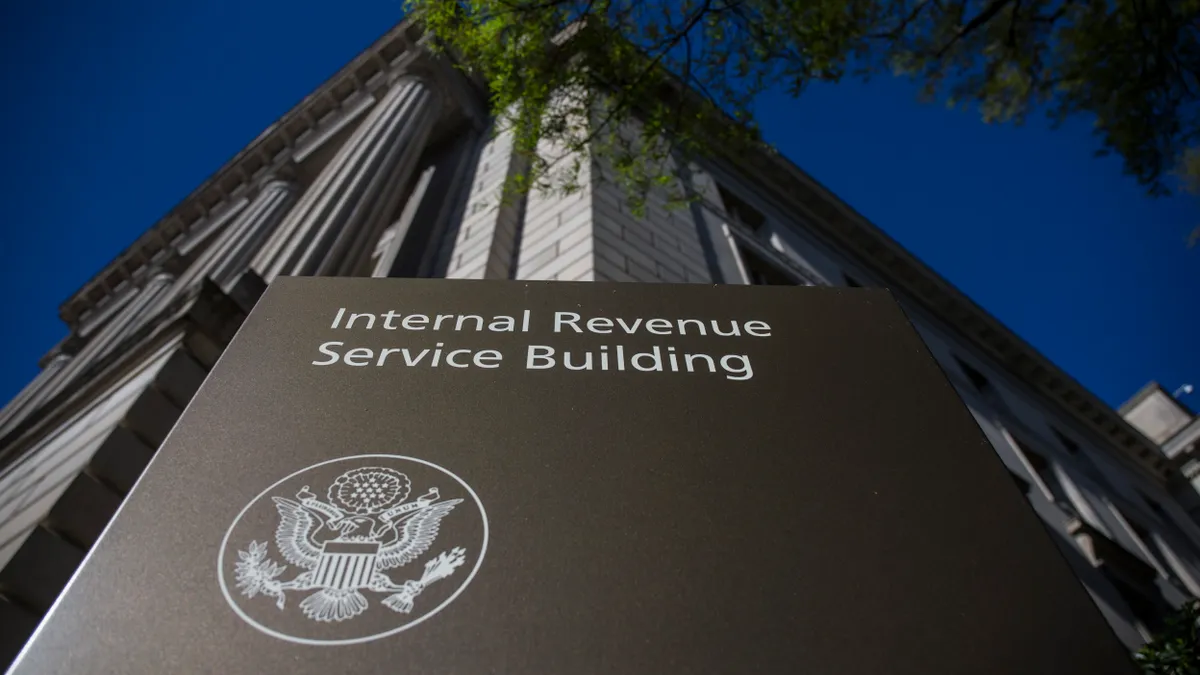Dive Brief:
- Certain provisions of the 2017 Tax Cuts and Jobs Act, many of which are set to expire in 2025, will likely see new life once President-elect Donald Trump begins a second term, a tax expert told attendees of a recent webinar.
- “It was passed seven years ago, and most of the provisions are supposed to lapse a year from now,” said Fred Barotz, tax director at New York City-based accounting firm Anchin, during the Dec. 10 webinar. “Given that Donald Trump will be returning to office next year, it's very possible and plausible that some or all of the provisions are going to get extended.”
- While the act’s reduction of the corporate tax rate to 21% from its previous level of 35% isn’t set to expire, the overall outlook on the individual rate extensions is a welcome contrast to the uncertainty that marked much of 2024 for contractors, many of whom are taxed at individual rates. The TCJA temporarily cut tax rates for individuals, which are set to expire at the end of 2025, according to the Tax Policy Center, a Washington, D.C.-based think tank.
Dive Insight:
The TCJA — the signature legislation of Trump’s first term — overhauled the tax code for both individuals and businesses. Beyond cuts to individual and corporate tax rates, it moved the country toward a territorial tax system, which excludes profits that multinational corporations earn in foreign countries from their domestic tax base, per the Tax Foundation, a Washington, D.C.-based think tank.
Even though the continuation of the lower corporate tax rate was never in question, that rate only applies to a minority of construction firms. According to the Associated General Contractors of America, 70% of construction firms are organized as “pass-through” entities, including S-Corporations, partnerships, LLCs and sole proprietorships. Those business structures are taxed at the owners’ individual tax rates.
Despite the lessening of uncertainty around the continuation of lower rates in the wake of Trump’s election, Barotz said that the future is not set in stone, given the political atmosphere in Washington and other proposals Trump has put on the table.
“I wouldn't bet against having this webinar a year from now, when the thing is supposed to lapse in a matter of weeks, instead of a year plus some weeks, and there still won't be certainty,” Barotz said. “So all we can really do now is play the hand that we've been dealt.”
The Tax Foundation noted the potential impact of Trump’s new tax plans and proposals — which include the reduction of the corporate tax rate even further for domestic production, the creation of sweeping tariffs and the repeal of green tax credits — depend on which policies are pursued and which aren’t, according to an Oct. 12 article from the nonprofit.
In particular, tariffs could prove costly to the economy and consumers, the foundation warned.
“Tariffs are a particularly distortive way to raise revenue, especially as they invite foreign retaliation,” the authors of the article wrote. “We estimate Trump’s proposed tariffs and partial retaliation from all trading partners would together offset more than two-thirds of the long-run economic benefit of his proposed tax cuts.”













